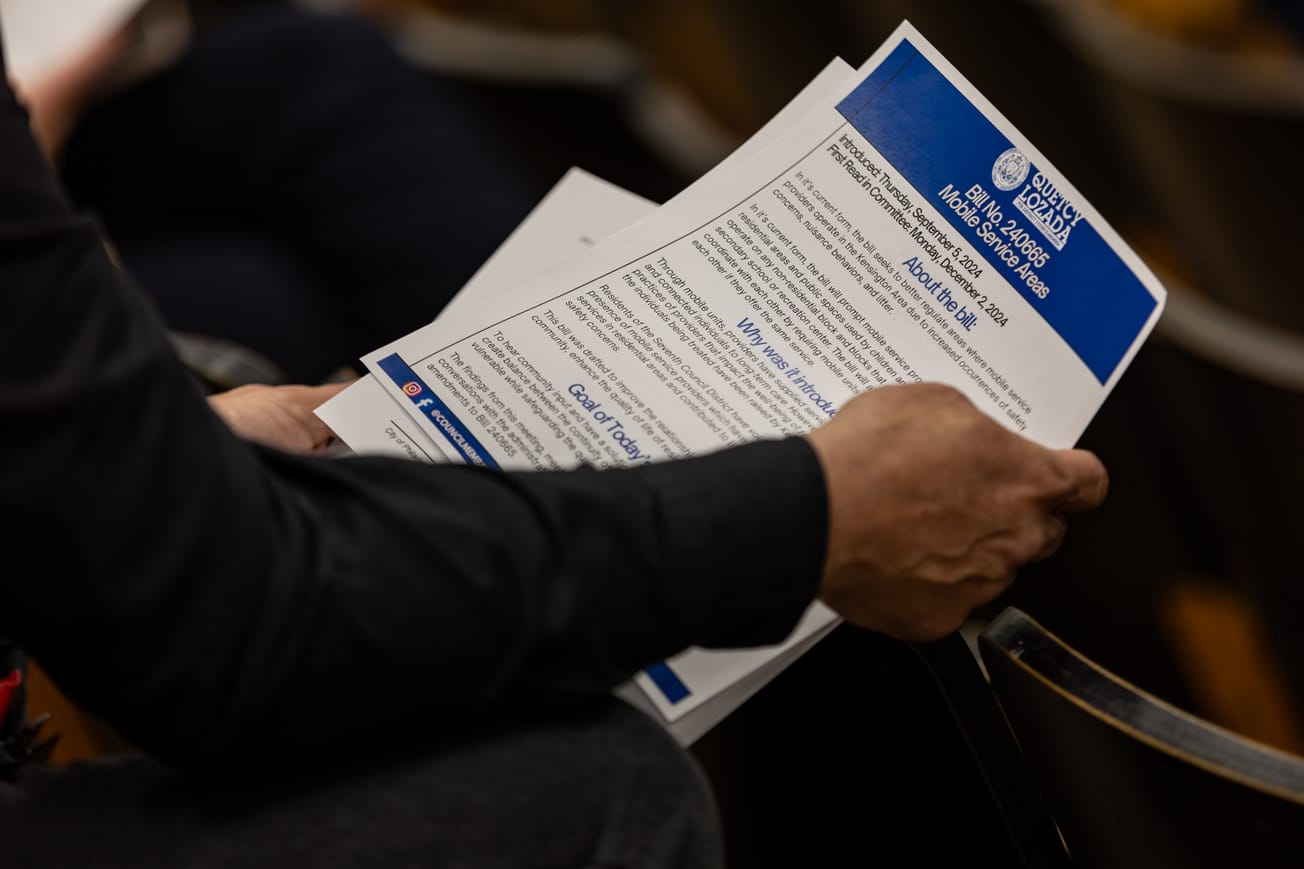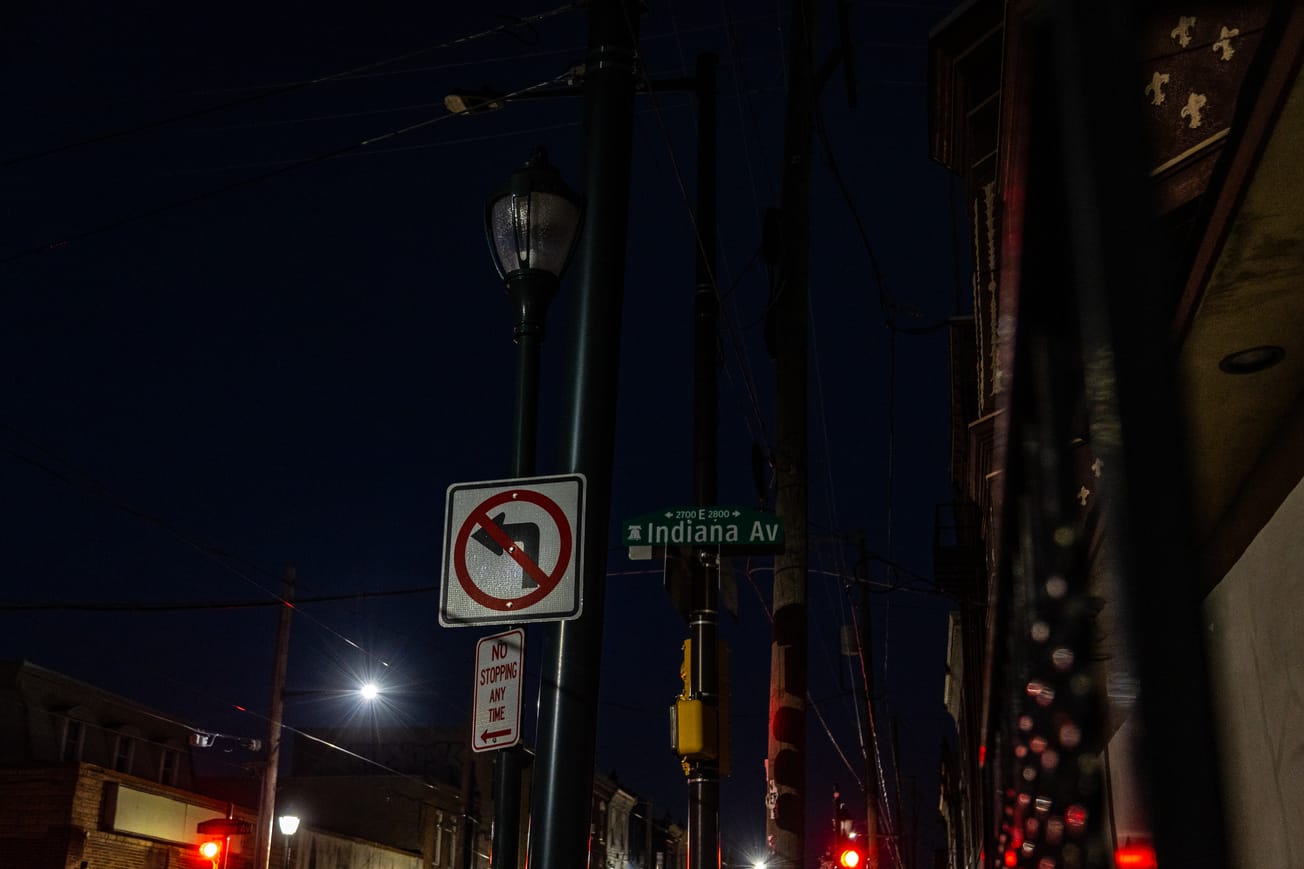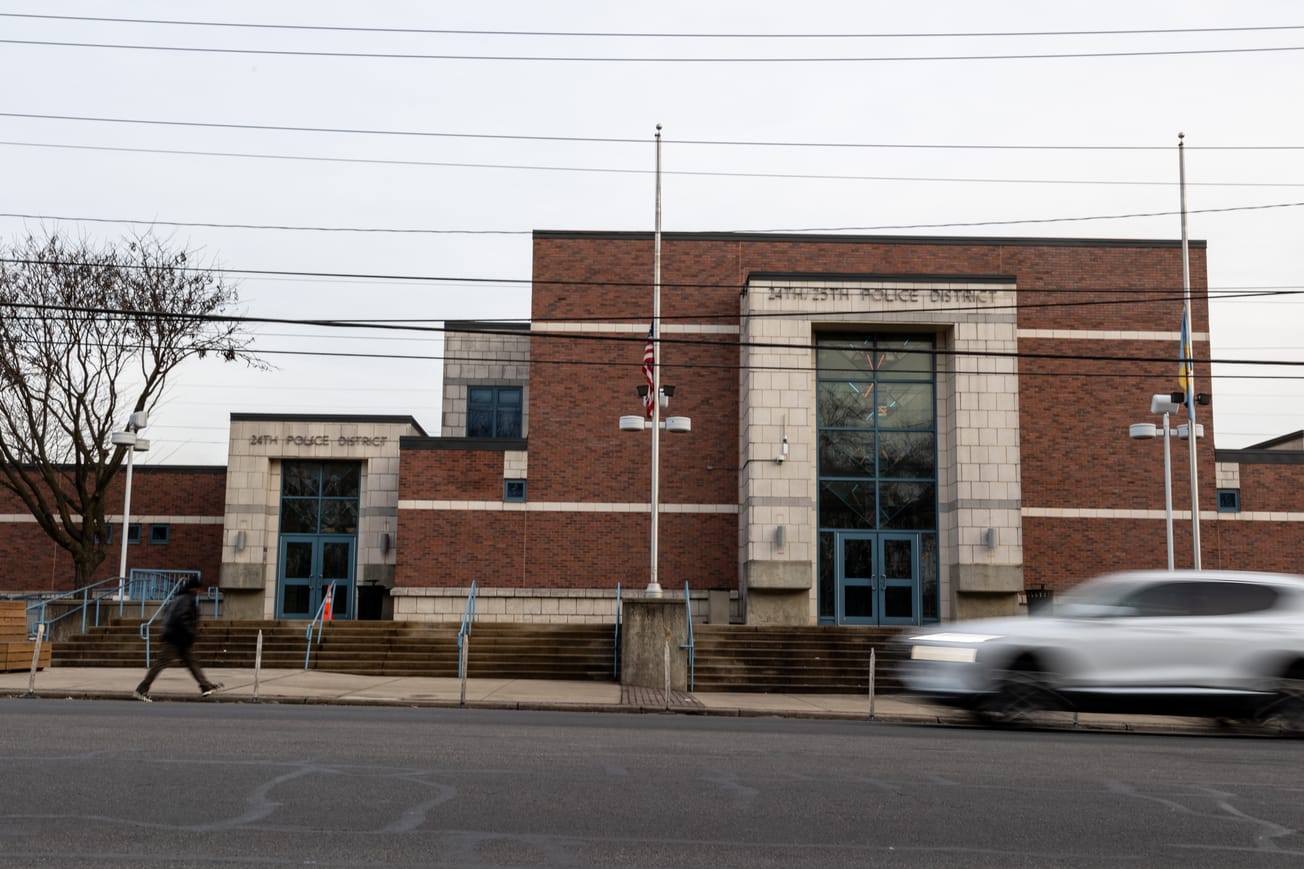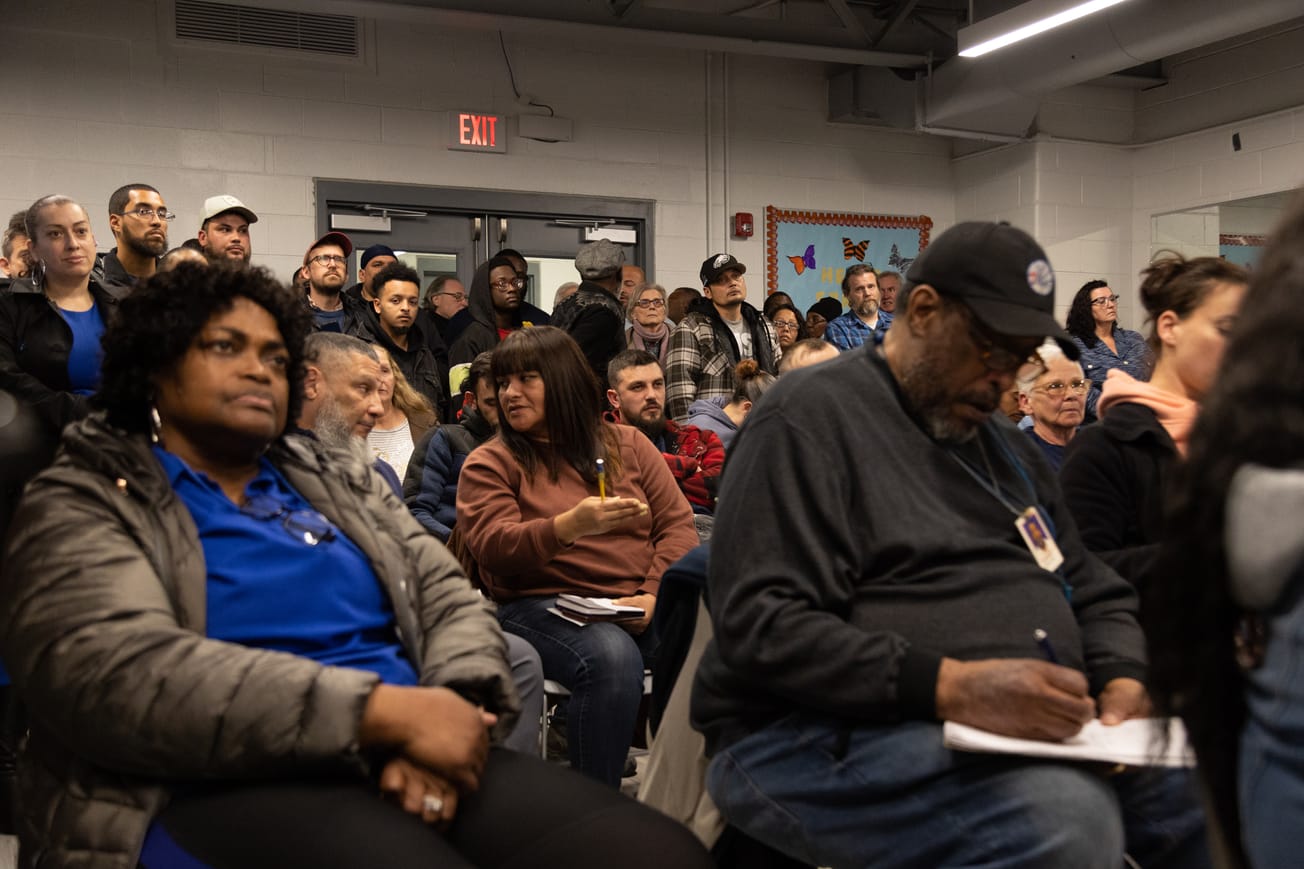During an exclusive interview on WHYY’s live talk show Studio 2, Mayor Cherelle Parker discussed policing Kensington’s open-air drug market and said the May 8 encampment sweep didn’t go exactly as planned.
Kensington Voice highlighted some key points from Parker’s conversation with WHYY Studio 2 co-hosts Cherri Gregg and Avi Wolfman-Arent.
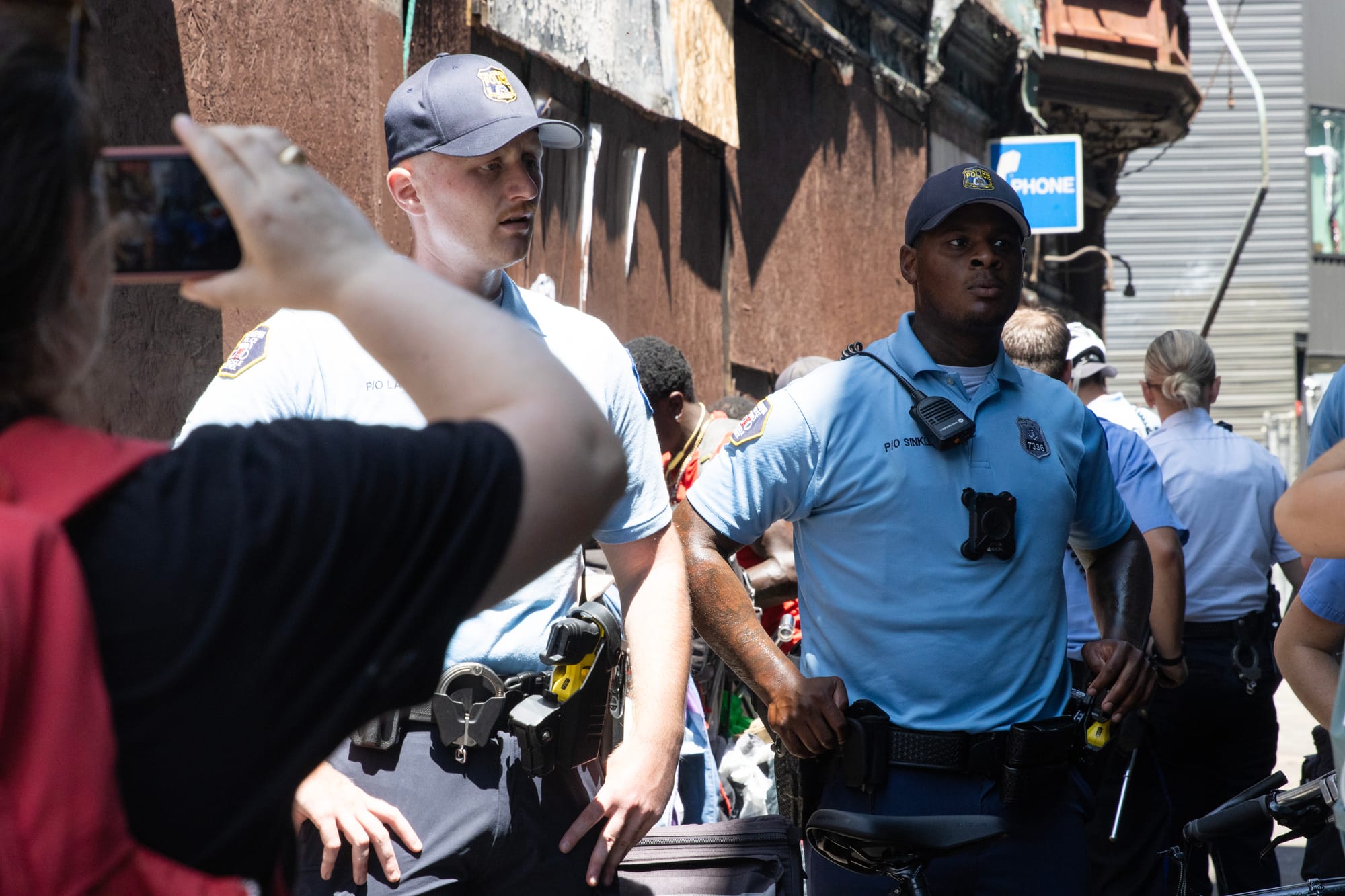
Parker on policing
Nationwide gun violence is declining, according to the Center for American Progress (CAP), a self-described nonpartisan think tank. Philadelphia has experienced the most significant per-capita decline in gun violence victimizations of the 50 largest U.S. cities this year, according to a recent CAP report,
At the end of April, there were 16 fewer gun violence victims per 100,000 residents in Philadelphia than there were in 2023, according to CAP data. Homicides are down by 37% compared to this time last year, according to the Philadelphia Police Department.
During the Studio 2 interview, Gregg asked Parker what Parker believes is making an impact on gun violence. Gregg also acknowledged the July 22nd mass shooting in West Philadelphia and said people don’t feel as safe even though those numbers are down.
Parker said that while she’s encouraged by the statistics, they don’t matter “if you live here, work here, play here, and you don't feel safe here.”
“As mayor I won’t think that we have accomplished our goal if people don't feel safe in our city,” Parker said during the interview. “What does that mean? That means catching a whole lot of steam for making a commitment to shut down the open-air drug market in Kensington and the neighborhoods across the city.”
Parker told Studio 2 that her vow to hire an additional 300 new police officers is “coming along extremely well.” According to Parker’s 100-day report she released at Conwell Middle School in July, PPD began holding recruit classes every six weeks starting in January. In June, the police academy sent their entire graduating class of 75 rookie officers to Kensington. The June class represents the largest number of new police officers graduating since 2018, Parker’s report said.
Parker said that PPD employment applications “have gone through the roof.”
“I haven’t been afraid to publicly affirm, even though it hasn't been popular, to say that I support community policing, with zero tolerance for any misuse or abuse of authority by the police,” Parker said.
Critics have said increased policing brings more violence to a neighborhood, doesn’t address the root causes of substance abuse and addiction and poverty, and have called for access to affordable housing and universal healthcare.
Some residents are hoping more arrests or forced treatment will improve their quality of life, others point to previous police crack-downs, like Operation Sunrise, that didn’t have lasting impact, and believe the city needs to de-center policing in its approach.
“But Philadelphians deserve to have a proactive law enforcement presence in their neighborhood as part of the fabric of the community,” Parker said. “You shouldn't just be there in response to a crime or crisis when I call 911. You should be there trying to get to know the people you’re sworn to protect and serve. I’m proud. That's what's happening. A lot of people are not happy with me about it. But I’m gonna keep on pressing for community policing. It’s the game changer.”
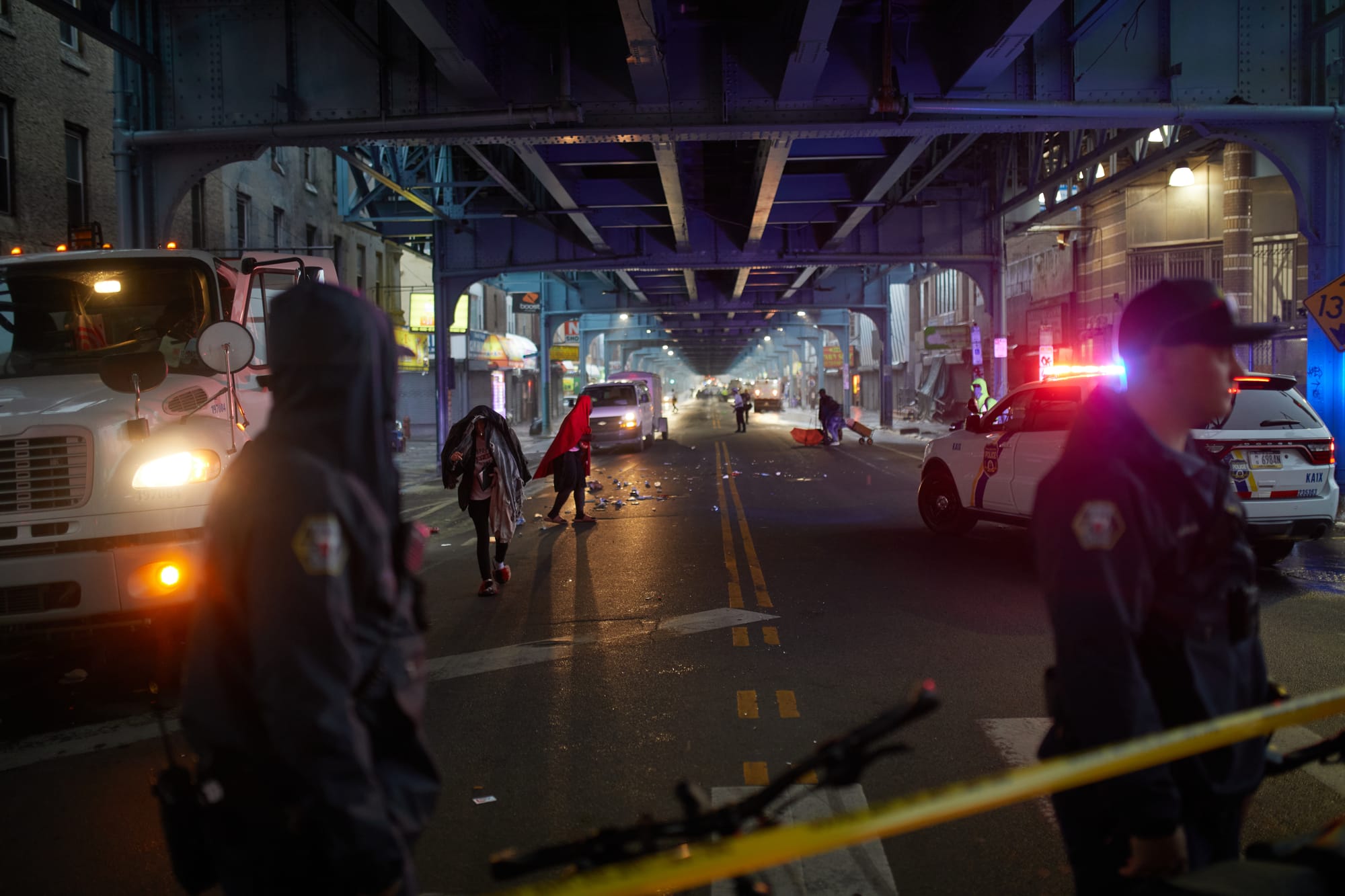
May 8th encampment sweep
During the interview, Gregg said Studio 2 received multiple emails from people about the May 8th encampment sweep and ongoing displacement of unhoused individuals.
“Folks said they’ve seen folks moving up to Northeast Philly and other parts of the city,” Gregg said. “What is your strategy for dealing with the homelessness that has now left Kensington and has spread to other parts of the city?”
Parker said she is trying to “build a comprehensive, holistic ecosystem that will allow us to deal with long-term care, treatment, and housing for our most vulnerable. Who are they? People suffering from substance use disorder and addiction, people suffering from mental and behavioral health challenges, and people who are unhoused and homeless.”
Parker said a citizen reported to her office about seeing people “openly using drugs” in their neighborhood – outside of Kensington – since the city’s enforcement in Kensington.
“We have some staffers who lived in that area … I want to be as diplomatic as I can here ... some of the activity was there long before we began doing the work that we’re doing in Kensington,” Parker said about that citizen’s neighborhood.
Co-host Wolfman-Arent responded with a question about whether Parker was suggesting that the citizen's report was “perception [and] not reality.”
Parker told Wolfman-Arent that some residents have tried to make a “causal relationship” between the “decisive action that the Parker administration has implemented” — increased policing — and “the activity that may have happened or been happening in some other neighborhoods.”
“They've tried to prove causation without proving that there's a statistically significant difference,” Parker said.
She later added that people “know what they see and they know what they experience, so I’m not fighting it.”
As for the May 8 encampment sweep on the 3000-3100 blocks of Kensington Avenue, which appeared by multiple accounts to not go as the city said it would, Parker said that sanitation workers with the city’s Streets Department began the action 30 minutes before the time the city had supposedly scheduled the resolution.
“They started earlier than they announced,” Parker said. “... They had made a public announcement that they wouldn't start this activity – I don’t remember what it was, but let's say it was 8 a.m. – they started at 7:30.”
The city had announced that the encampment sweep would start at 8 a.m. City officials said police officers and city staff were going to document and store people’s personal belongings while they connected to services. But officers arrived hours earlier and by 7:20, city sanitation workers were throwing away peoples’ tents.
Legal observers and harm reductionists said they witnessed unhoused individuals being pushed out by police and asking for city services before outreach workers had arrived. The people living on those two blocks were gone by the time outreach workers arrived.
Moving forward, Parker said she will not allow the “open-air drug market and everything associated with it” prevail.
“It will not,” she said.
City Council approved Parker’s budget in June, which included $100 million for a drug treatment facility in Northeast Philadelphia, next to the Philadelphia Department of Prisons’ complex.
“Are there going to be some challenges? Absolutely,” Parker said. “I am unapologetic about affirming that it is not being done with perfection because perfection doesn't exist.”
Have any questions, comments, or concerns about this story? Send an email to editors@kensingtonvoice.com.


